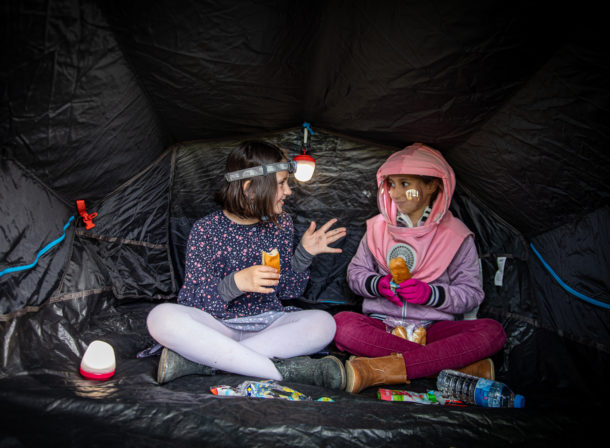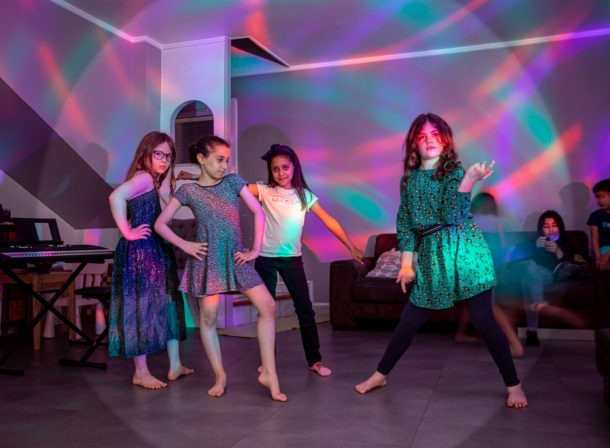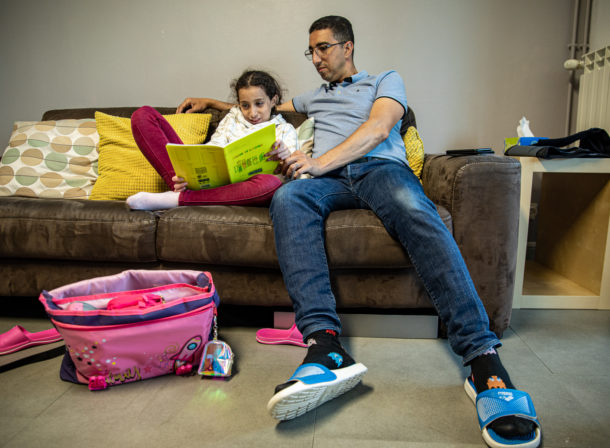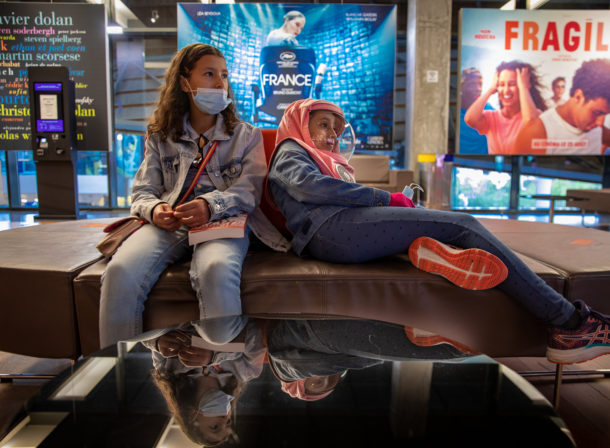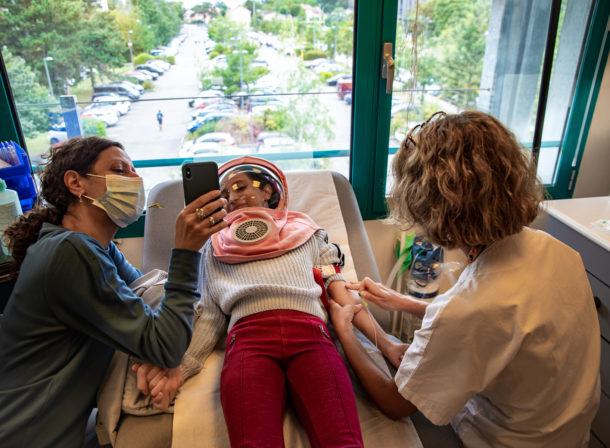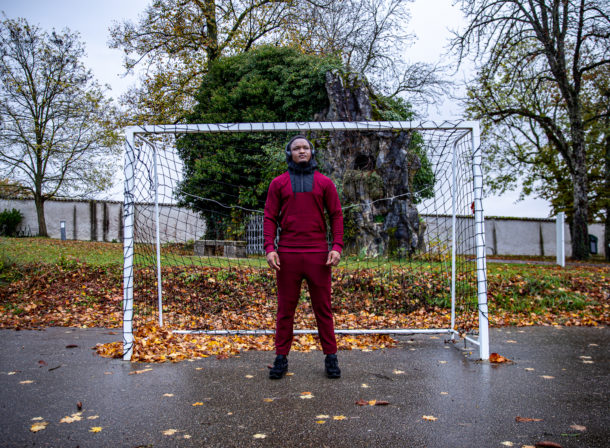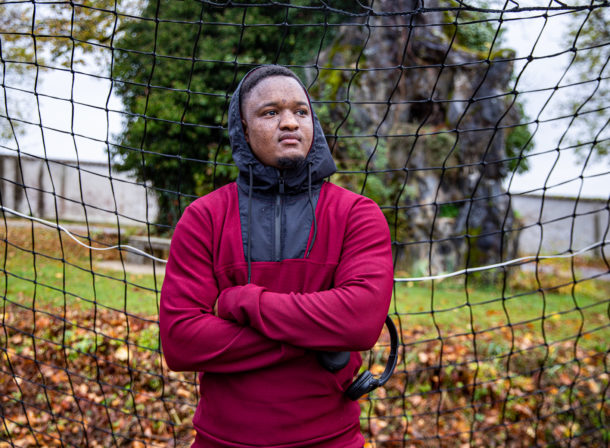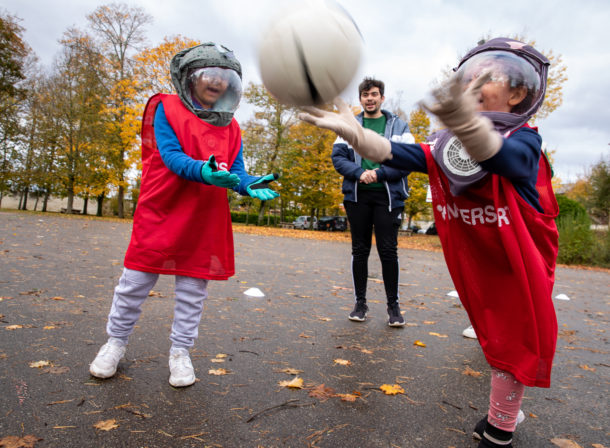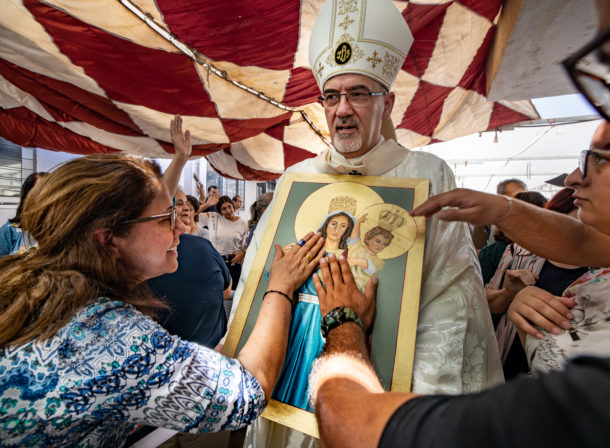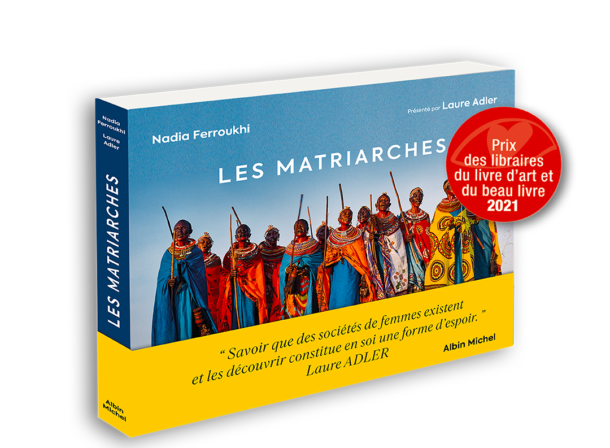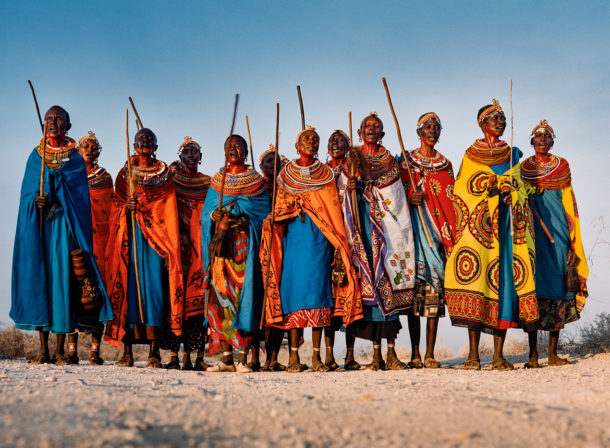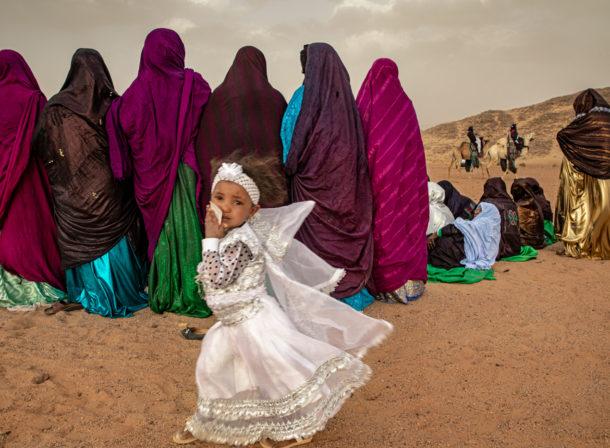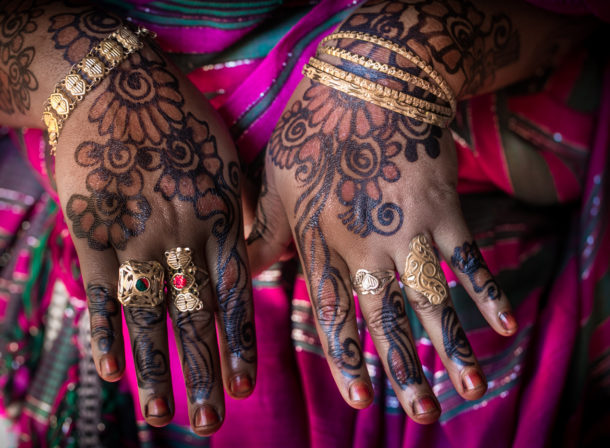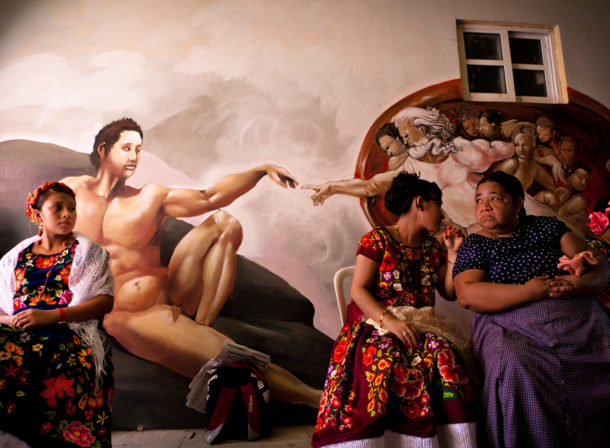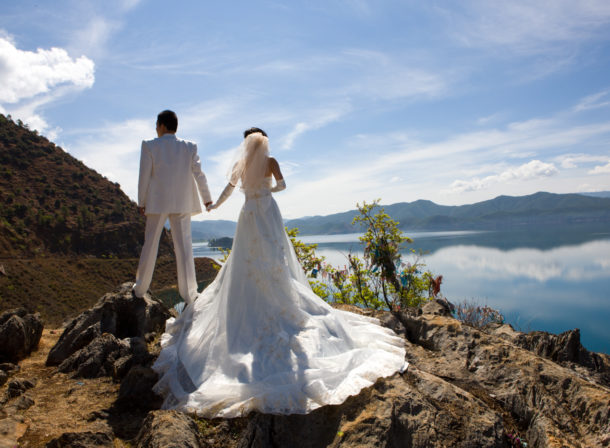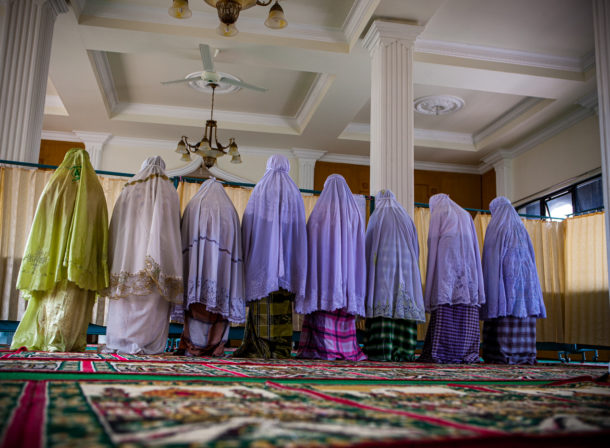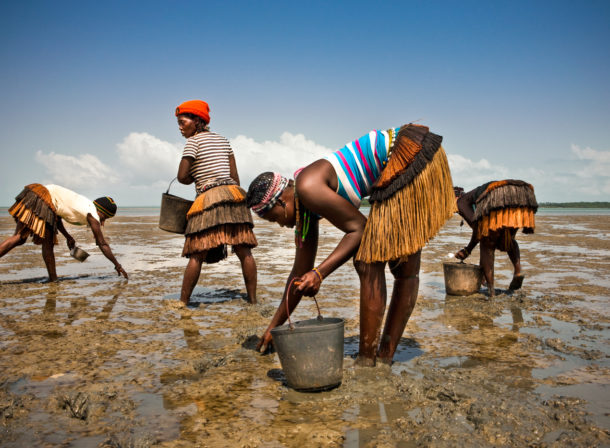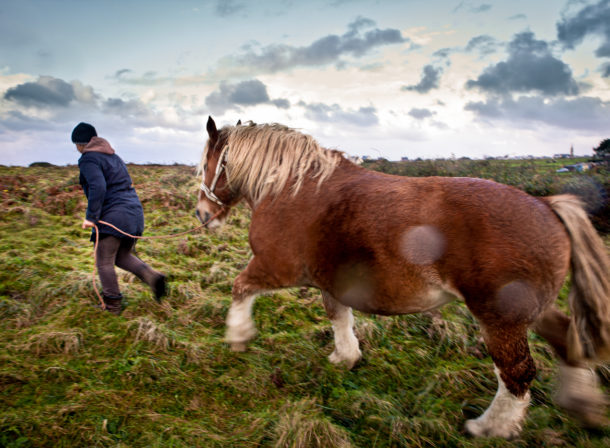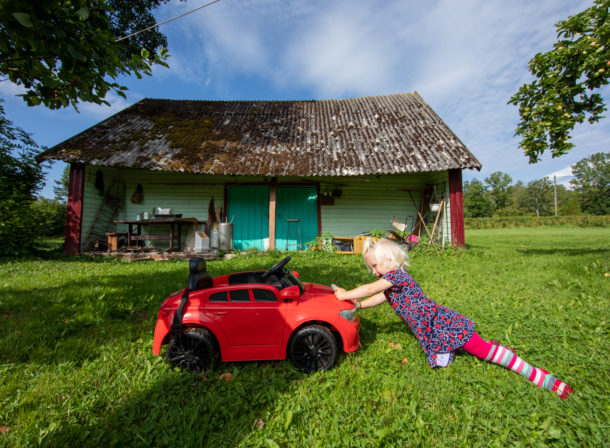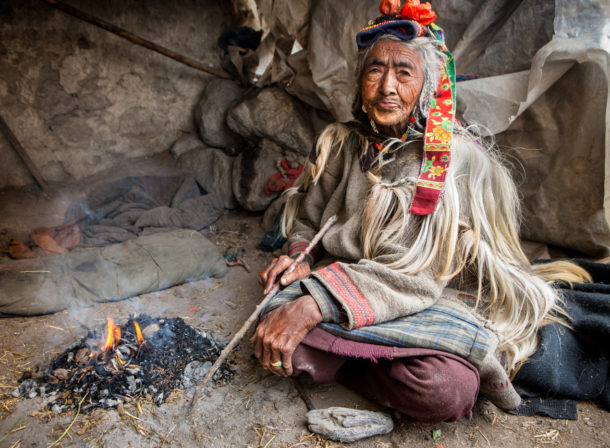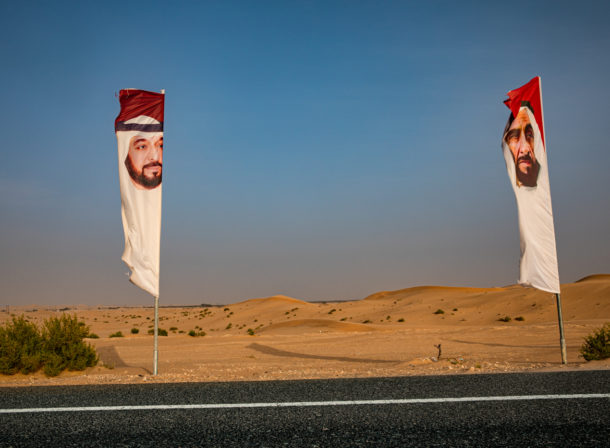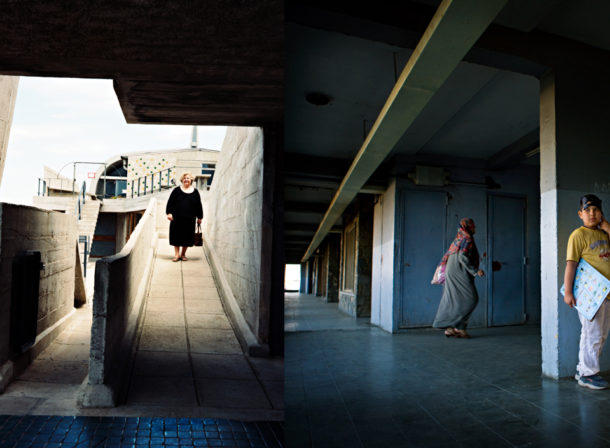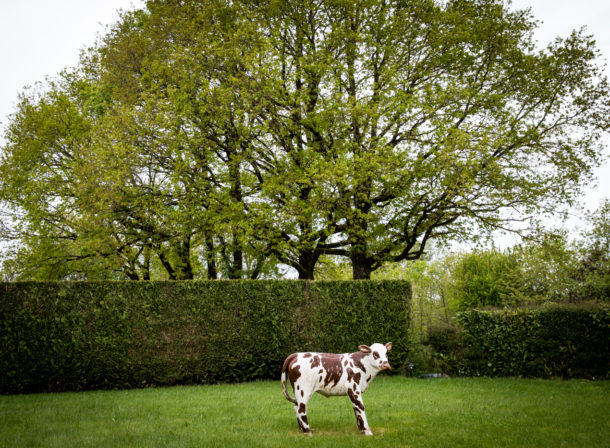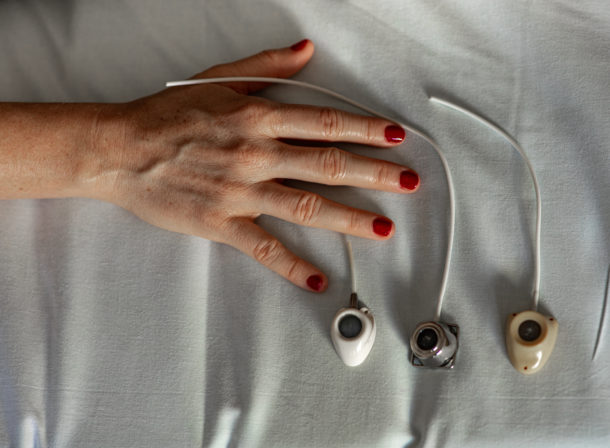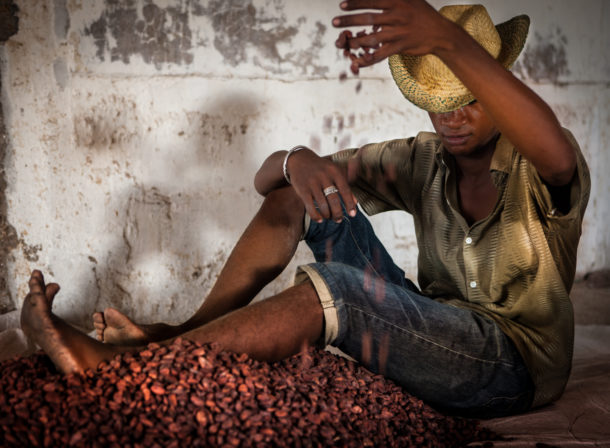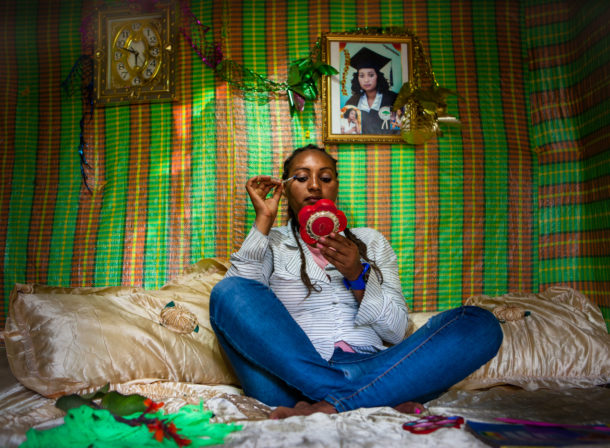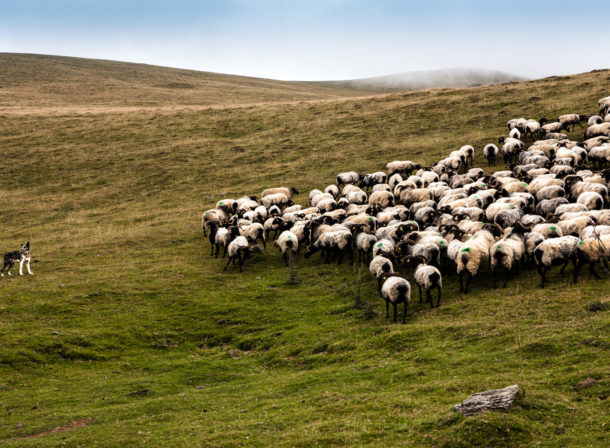Delia is a moon child. Under this poetic name, a rare genetic disease is hidden. Her skin is unable to protect her from the bite of the sun, it does not repair itself. In other words, walking barefoot in the grass in daylight, lying on the sand of a beach is fatal for her. Of course, she won't melt or die all at once. No, it is a slow cancer of the skin which is waiting for her, gnawing like a poisonous sap.
The disease of the children of the moon, Xeroderma Pigmentusum, from its Latin name - or XP from its futuristic name - affects only 90 children in France. It is a poorly known and little documented disease, which develops more in the Maghreb countries, in Brazil or in Japan.
The announcement of the diagnosis falls like a knife for these families. It means the end of an outdoor “normal” life. From one day to the next, the children can no longer go to daycare or school, one of the parents stops working - usually the mother - and they have to reinvent a new way of life that impacts the whole family. "Our illness", Delia's father will eventually say. In order to avoid the UV present in the sunlight but also in many indoor lightings, the families must organize themselves, relearn the most banal gestures to live the world differently. To make it joyful to preserve childhood. At each outing, parents dress their children in special gloves and helmets that make them look like cosmonauts. Like little bubbles walking around. The smallest piece of skin must be hidden by fabric barriers. The "dosimeter" becomes an indispensable device to check that the UV level is at zero in the premises before removing this cumbersome paraphernalia. Families are thus exchanging their ordinary life for a daily life where each gesture is thought of, organized and measured. Houses, cars, schools must be equipped with special filters. The disease becomes a daily struggle to try to build, in spite of everything, a childhood as normal as possible.
Little Delia walks around outside her house, wearing pants, gloves and a helmet. Alternating, sometimes blue and sometimes pink. While at home, she changes her outfits all day long, putting on princess dresses that she can never wear outside.
The masked life we discovered with the Covid - her discomfort with speech, the fog on her glasses, the reduced field of vision - has been her daily life since she was a baby. Sometimes she accepts it and sometimes at the edge of her lips that pervasive question: Why Me?
It is thanks to the parents of twins, diagnosed as children of the moon, that we owe the first masks, with an absolute protection. When they saw the Mona Lisa, they realized that there were materials to protect the paintings from light, and from there, was born the idea that it was necessary to protect the sick as one protects works of art. The research is progressing. Slowly. The disease is too rare to benefit from substantial funds. The children are followed by researchers around the world.
In the meantime, they have disability cards. But it is a variable handicap, because they are more handicapped in the summer and less in the winter, handicapped during the day, but not at night. This creates a dialogue of the deaf with the administrations.
Paradoxically, the costs of the equipment (helmet, dosimeter, filters etc.) are not covered by social security, even though it is vital that the children protect themselves. And most of the families are in a precarious situation, between the cessation of a professional activity (less than 5 mothers of the 90 children concerned manage to work) and the costs which explode. So, as with any form of disability, either the families come together or they implode.
The domain of the moon-children is at night, they can finaly loosen the straitjacket of security in which they evolve. Thus, they watch for this window of freedom. Little Delia can then smell the flowers, feel the thorns of the roses, the sticky dampness of the wet earth. Her sun is the moon, her freedom, to the song of the rare owls, and a life made of midnight picnics, joyful carnival under the ball of stars, opens up.
Red poppy in pink glove. During the day, Delia can only go out if no skin is exposed. Warmly dressed, the head in a ventilated jar, mask that protects her from UV. She lives almost normally, a little girl who plays, walks, has fun... but "encased". She sees the world through a glass window and understands objects with gloves.
Rain of black glitter. Diagnosed at 1 and a half years old, by chance. Her face riddled with freckles, so young - rain of dark glitter - challenged a dermatologist during a consultation. Waiting in the anguish and without understanding, until the arrival of the diagnosis. She was lucky to be diagnosed so early.
Snack at the parc. Delia enjoys a snack in the park with her friend. It is sort of an in-between season. Winter when she is cold under her bubble, and the heat of the summer, when it will be too warm ... and she will have to wait late to go out. That's a long time for a child.
Picnic in a black tent. When Delia wants a taste of the park, her parents unfold a black canvas camping tent. The new tents are perfectly opaque. Plunged in this blackness, as in a belly, she swallows brioche and chocolate bar in the flickering light of the LED.
Outside the sun and its brightness. Her parents forgot her water, so she puts her masks and gloves back on in a hurry to reach out through the opening.
Special veranda. "The veranda is equipped with UV filters. We had it specially build in order to prevent Delia from catching the light when the door is open. She feels like she's outside. We had to re-equip the entire house when we bought it. Such as putting anti-UV filters on all windows, 15,000 euros. We have no choice. We have to learn to live with the disease."
How can you garden when you have to wear special, thick gloves all the time? To remedy this, the children plant seeds, protected by the safe glass of the veranda, and go and bury the plantations at night when they have grown sufficiently.
The smell of roses at midnight. The night is the domain of the moon children. At last, they can loosen the security straitjacket that encloses them. Little Delia smells the flowers, pricks herself on the thorns of the roses, rolls in the sticky dampness of the humid earth. She also loves the rain, the caress of the sky that makes her alive.
Jumping higher than life. Trying to have a childhood like others. As much as possible. She and her sister Melina have fun after school. Even if you have to hold the mask while jumping. Every little step is a long struggle.
"Delia can you leave the room, I forgot the bread outside" asks her father. She gets up and hides behind some furniture away from the light. She sulks, then puts on her bubble and runs to the swing. A moment of escape. She likes to take refuge under the shade of the cherry tree to avoid the glare of the sun. She needs, at times, to extract herself perhaps to escape in her thoughts while swinging to touch the sky.
In the house, all the windows are equipped with UV protection glass. Every lamp has a LED bulb. But as soon as the family moves, it becomes complicated. They need their "diplomatic suitcase", the bulky and indispensable material to secure the place. So the father dreams of repositionable anti-UV filters, which would allow them to go to more places with more lightness, and to find this lost spontaneity.
Delia's companions. Strange toys for a child. They follow her everywhere like bodyguards. Different masks for different occasions, that she can match with her clothes. Gloves, LED bulbs without any UV, creams to moisturize her dry skin. And a dosimeter. Her "best friend" as her parents say. If the room has zero UV, Delia can remove her multiple layers of protection and finally breathe without a mask.
The beach in her room. Delia loves to wear little summer dresses, light outfits that blow in the wind, but which are forbidden to her outside. So she puts them on at home, and changes several times a day. Lying under the sun of the window, she feels like she is sunbathing on the beach. Her mother looks at her, happy ... and sad.
The dosimeter. It allows to check the safety of a place. Any outing must be planned in advance to check the lighting which can contain UV rays and be harmful.
Shopping in is too risky for Delia in most stores. Still, she loves dresses, jewelry, anything that makes her look like the princess she cannot be outside. She can rarely take off her mask in a shop. So they buy the clothes she cannot put on and she will try them on at home.
Living behind a window. In summer, it is hot and Delia cannot go outside unprotected. She suffocates under her mask with her clothes and gloves. Impatient, she watches for the night fall. While the others enjoy the mildness of the day. The sunset marks the beginning of freedom.
Two sisters in the desire to be coquettish. To brush her hair, too often tied up because of the helmet, so letting it go is already a sign of freedom.
Father and reading. A large, plush house in Saint-Priest, a suburb of Lyon. "Buying a house was not our plan, we like living in the city, but we had to adapt" confides Lakhdar, her father. The sound of doorbells ringing as soon as a window or door opens and closes is constantly heard. "It's to make sure that a window isn't opened by chance". He dictates the instructions: "Do not open the doors and windows if Delia is there. Air the house when she is at school. Make sure she has her helmet on before opening the car door."
The gloves of the children of the moon are not tactile. Hence the difficult use of smartphones and tablets, and the difficulty to simply turn the pages of a book.
With her pink cosmonaut mask, spinning on her scooter, there are those who ask her if she wears a special anti-covid mask. No. Not really.
The mother of the Bordeaux twins who are 30 years old (also children of the moon), came up with the idea of creating UV filtering materials. When she went to the Louvre Museum to see the Mona Lisa, she realized that it was possible to protect the paintings from the effects of light and preserve them for 200 years because the museum windows had protective filters. So why not protect our children as we protect a masterpiece.
The seriousness of this pathology obliges the moon children to grow up faster. Childhood sometimes appears at the bend of a corner of light when she can play, just play, without worrying about the rest.
Sometimes Delia looks at her brother and sister playing outside in a carefree way that is natural for that age, and her face is tinged with an autumn sadness. Why me? She rides her trotinette to play too.
There is always worse, mantra of hope for survival. Look where you walk, look you have friends who take care of you, you run at night, ride your bicycle, go to school. Come on it's hard, but there's worse.
For the school director, it is normal to defend access to knowledge. Which means equipping the school. When Delia was diagnosed, overnight she could no longer be cared for in the community and her mother, Naima had to stop working for some time. The family had to move heaven and earth. Then, the understanding mayor launched work to equip the nursery with windows and LEDs, and finally life was able to resume its normal course. Naima went back to work.
According to the principal of the elementary school Delia attends, she is a normal student. She does not play with the fragility of her illness. She is well accepted without any nasty comments from the other students. If all the students with difficulties could be managed like her, it would be simple, he concludes.
Little blue bubble. Delia is grumpy, she would have liked to wear her pink helmet but today, she has the blue one. The battery of the one she wanted to wear has to be charged. Very coquettish, Delia is not different from the others.
If the other pupils take advantage of the recess to stuff their mask in their pocket, Delia must always keep her helmet. -Can you play everything? -Yes," says Delia. -And the wheels, do you play them at recess? And the tomato game? And the ball? -No, no, I prefer to talk. If she falls, there is a risk that the helmet will come off and she will be exposed to the light.
Before finishing primary school, the parents have to make an appointment with the college, to have time to organize according to the safety of the building and any other rehabilitation. The family hesitates between two colleges. The private one is built in new materials integrating safe anti-UV windows, but it is expensive, nearly 3,000 euros per year. If Délia registers in a public school, they will have to negotiate adaptation work with the local authorities to adapt the classrooms of the college, but there, the director tenses up on the disease. Naima struggles to explain that there are only solutions to enroll her daughter.
The parents have to fight against individuals who see in these children complicated administrative problems and mountains to move.
For the director of the school where Delia goes, it is normal to defend the access to knowledge. This means, in a concrete way, equipping the school. When Delia was diagnosed, from one day to the next she could no longer be cared for in the community and her mother found herself alone with her, with no possibility of working. The family had to move heaven and earth. Then, the understanding mayor started the work to equip the nursery with windows and led, and finally life could go back to normal. The parents have to fight against the spirits that see in this child complicated administrative problems and mountains to move.
Two students meet the family. They work on a prototype of a tent for the children of the moon, and a helmet even lighter than the actual one and more ergonomic.
This foldable, light, transparent and breathable tent would allow moon children to be in nature in the middle of the day. But the process is not yet perfected.
The chickens sleep at night. Delia can hardly caress them without gloves. She feeds them during the day but takes advantage of the night to look for their eggs.
This is the movie theater where they can go. But she has to take off her helmet with the light off and put it back on before the light is back on.
Melina and Adil have adapted. They don't go out much to remain a close-knit sibling. But they learn to go outside despite everything, without feeling guilty. It is when the weather is nice that it is difficult. They eat dinner locked up. Inside. Delia's illness easily takes all the space.
"Our illness" as they say... Because the entire family has to adapt on a daily basis. No more spontaneity, no more saying "Let's go to a restaurant tonight...". Of course Naima and Lakhdar have lists of places, all of which have been scouted, checked and validated. But it's not the same. And it never will be. It needs to be said.
Children with XP will have a slightly lower than average height and a slightly higher than average weight as adults, whereas they are born with standard heights and weights. The researchers wonder if this is due to changes in circadian rhythm that are common with XP. They supplement more than normal in vitamin D, but not all doctors agree, there is a debate.
Waiting at the hospital, like every 3 months. The disease disrupts the smallest part of a family's existence. It makes the couple fragile. Absorbed by a daily routine that has become obsessive about security, there is no time for these mothers and fathers who forget themselves. Many couples break up or mothers stop working. In the association of the children of the moon, less than 5 mothers still work. Eternal self-sacrifice of mothers, who exhaust themselves in silence for the love of their children. Naima is one of the few who continues to work.
The most important treatment of the disease is preventive, avoiding exposing any part of the skin to light. And by wearing sunglasses under the mask very often. Research is very concentrated in the United States which has more cases. There are significant advances in treating skin lesions that could become cancerous with phototherapy and immunotherapy.
It's a good thing that Delia was identified so early, she doesn't have cancer and is being followed very closely. Skin cancer, the word is scary, it is the dread of all the parents of the children of the moon. The disease is rare, one case in a million, mainly in the United States, North Africa, Japan and Brazil. It is not yet known why some populations are more affected than others. It is the lottery of genetics. In addition to skin cancer, moon children develop other forms of cancer, such as thyroid cancer.
A pandemic life made the helmet more bearable. The whole planet lived in seclusion and masks for a while, and got a glimpse of little Delia's daily life. Before, no one thought or talked about masks. "Don't forget your mask". This sentence had become our daily life, but for Delia it is a habit since childhood.
Delia's parents bought a huge tent, to which they added anti-UV filters, and under which they placed a swimming pool.
Water parks filled with spirals of slides dropping into the water? "No. We've never been," says Naima, "it's impossible. The guilt would be too much. We try to do things together, even if it's not always possible."
Delia moans about getting dressed and undressed again and again. The skin still wet under the clothes put on in a hurry.
The association Children of the moon organizes once a year a stay where various families from all over France can meet. The camp is the highlight of the year. Siblings and generations mix.
These young boys are waiting impatiently for the dosimeter to read zero. Then, they will finally be able to take off their helmets and gloves and enjoy the amusement park like all the other kids, without having people stare at them, and not hearing the comments of the curious thinking that it is a Halloween costume.
A mother suffering from thyroid cancer talks of the difficulty of dealing with her own death with her little moon child, Ana. If she disappears, who will take care of her daughter with such a complicated illness? How do you tell Ana, "Listen, maybe I'll leave when you're so little, when you still need me so much. But you have to go on living, you have to be happy. If that happens, you can talk to me, because I will always be in your heart."
Malik - XP Variant - 26 years old. He doesn't wear a helmet but wears clothes that cover him, caps and sunscreen. It is an XP Variant, an almost science fiction term. Diagnosed at the age of 20, he lived in West Africa before the spots grew on his face. He was told that it was natural but he kept having problems with red and dry eyes and lesions. He came to Belgium to treat his eyes. Then the diagnosis came and he has never returned to Africa since. His specific form of moon disease allows him to tolerate a little sun.
The disease is considered as a handicap, and they have a handicap card, renewable every two years. Each time, it is a fight. Because the disease is little known and little documented. But this card allows to park the cars near the entrances, to wear the helmet less time, and to cut the queues.
The bubbles that exist now are much lighter and allow you to run and jump more easily. They are panoramic and offer a wide vision perimeter. It is thanks in part to Emilie, researcher and mother of a moon child, who experimented with them, and succeeded in getting them certified.
Some parents dread having another child after having a moon child. This underlying question torments them: what if he or she is also affected by this pathology? For the child in question, this means: "I am such a burden for you, that you don't want to have other children!" Even though there are now in vitro fertilization systems.
We owe the invention of the dosimeter to the parents of the twins. A couple of scientists, who are the first to have completely protected their two children. They also created the first helmets, heavy, unbreathable but which allowed to live differently than locked up. In 2015, with the LUVI project, the dosimeter was selected to participate in the Hackathon (an innovation competition where participants come together to generate ideas and design solutions in a very short period of time). Programmers and researchers from around the world work on a project in a collaborative way. The goal was to make the dosimeter smaller, lighter, stronger and less expensive than the 3,000 euros. Successful bet.
There are about 90 XP cases in France, which is not enough to be heard by the public authorities. The association of the moon children is also in the process of regrouping with other rare skin diseases, in order to have more power and to succeed in being heard by politicians and the administration, because these are disabling diseases that do not fit into any box.
The Moon Kids Camp is a time for families to take a breath and get together. To forget themselves in adapted parent-child activities. But it also allows them to dare certain questions, to exchange and to meet researchers who work on the subject. To address the fear of the disease, the fear of the future, the fear of dying.
The parents tend to forget themselves in this organisation of the disease. They live in the photosensitivity of their children, feeling guilty about going out. Hence the setting up, for the first time, of a sports workshop with sports university students.
"Take care of yourself to take care of the children" says the sports coach and check your own vitamin D deficiency.
Meetings are also organized between mothers and psychologists, in all intimacy. They exchange on various subjects such as the difficulty their children will face at some point, and slowly unveil the taboos and questions that they don't dare ask. Adolescence? love? life expectancy? And what profession?
The Moon Olympics. The sports coach organize moon children olympics, ultimate moment of celebration to close the camp! It is the first time that the children can participate in sports tournaments because usually they are penalized. They shout, sing and dance. Perseverance prize, mutual aid prize, friendship prize, fair play prize, fighting spirit prize.






